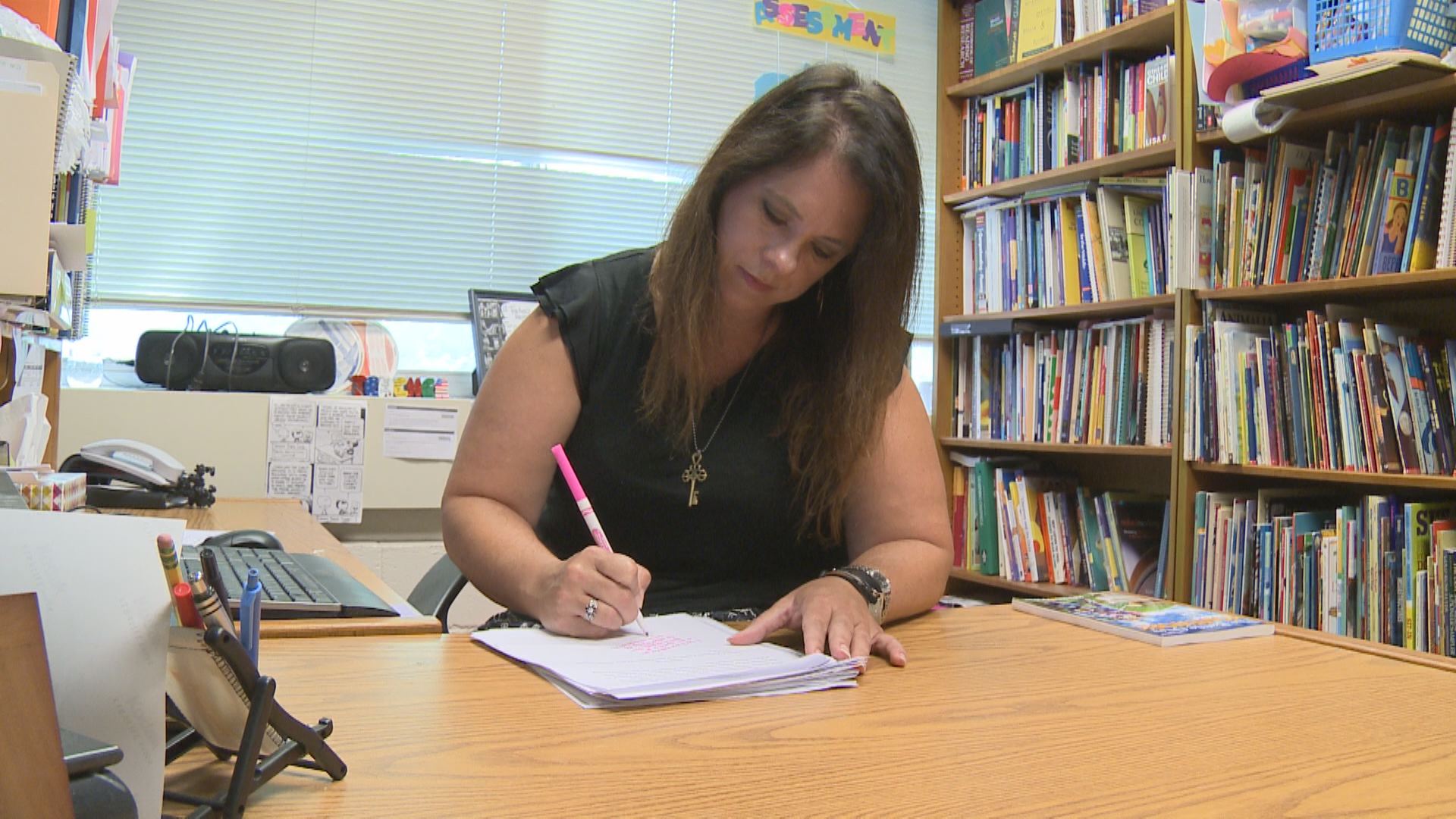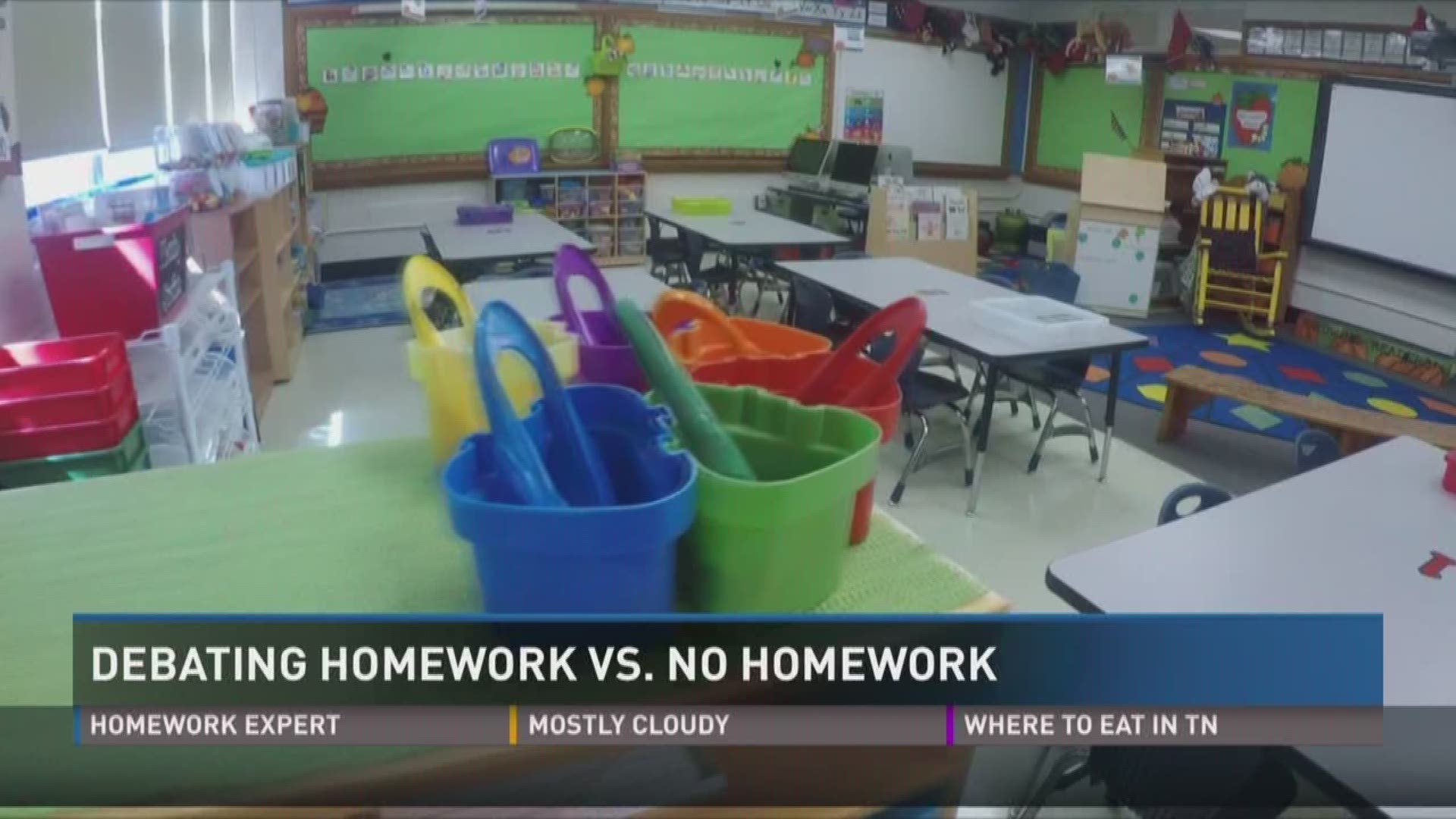Do you think it's good for kids to have homework? Let us know on the WBIR Facebook page.
The subject of homework can be a divisive issue.
In this Parenting 101, we talk to a curriculum expert about the history of the homework debate and the national recommendations. We also visit a local elementary school where the third grade classes went homework free last school year.
The homework debate has a long history.
"Tension has been there off and on over the last 100 years,” said Amy Broemmel, associate professor of theory and practice in teacher education with the University of Tennessee College of Education, Health and Human Sciences.
She provides a quick homework history lesson:
At the turn of the century, it was believed homework created disciplined minds. But there was pushback in the 1940s. Parents said homework was interfering with home life. In the late 1950s, Sputnik and the space race ramped up homework again. However, the mid 80s brought more pushback.
In early 2000s, homework increased again with the No Child Left Behind Act.
"More homework, more intense scrutiny on schools," said Broemmel. “And now it seems 17 years later, we're kind of getting the pushback again with kids needing to be a little more well-rounded.”

When it comes to homework, Broemmel defers to the research.
“Kids who do homework generally have higher achievement levels, but it varies a lot by grade level,” she said. “In K-5, there's actually very little impact.”
Broemmel says long term, homework in elementary school does help develop study habits. But, it has a much higher impact on academic achievement in middle school and high school.
The guideline supported by both the National Education Association and National Parent Teacher Association is no more than 10 minutes of homework per grade level. But Broemmel makes an exception for grades K-2.
“Personally, I would say K-2 advocate reading,” said Broemmel. “Read for 20 minutes and don't assign additional homework.”
Following the guidelines, third grade would be 30 minutes of homework max. The amount of homework increases 10 minutes with every grade level.
“By the time you're a 12th grader in high school you're looking optimally somewhere between two and two-and-a-half hours of homework a night,” said Broemmel.
Shannondale Elementary School follows the national recommendation.
“The biggest concern we often hear from parents is not enough time for other things at home,” said Megan O’Dell, Shannondale principal.

O'Dell stresses reading, personalizing homework and balance with her teachers.
“Third, fourth and fifth grade are departmentalized and switch, so they have to work very closely together to make sure reading's not giving 40 minutes, and social studies isn't giving 40 minutes,” added O’Dell.
The school's third grade teachers took a different approach last year by opting for no homework at all.
“Parents were extremely excited at the beginning, but then started having some concerns of 'I don't know where my child is struggling, I don't know what they're working on in school and they didn't do too well on this test,'” O'Dell said.
Without homework, teachers had to create other ways to communicate with parents.
“If there's an issue - there are tears, frustration - absolutely call the teacher,” said Broemmel.
“They're not at your house to know, just like parents aren't in the classroom, so you have to have that open communication of what's going on,” agreed O’Dell.

